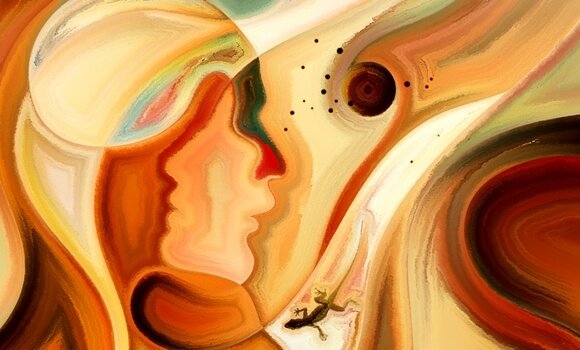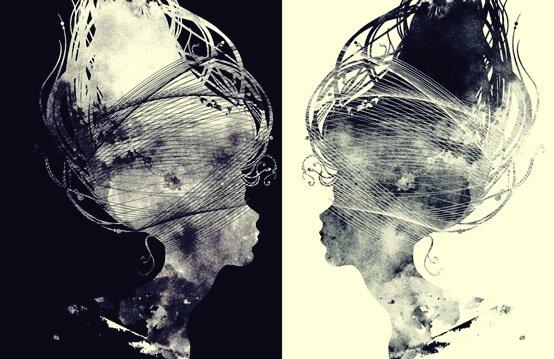
The best revenge is the one that is not carried out. The best revenge is to smile at hatred, to stifle anger and show the other that we can be happy. Because there is no better strategy than to act calmly and wisely moving forward, with a firm look and a rested heart knowing that there are weights that you do not want to take with yourself for too long.
Confucius said with great success that before starting the journey of revenge we must dig two tombs. Ours and our adversary's. Philosophy has always provided us with frames of reference from which to reflect on the act of revenge and the moral consequences linked to this very popular and at the same time "attractive" practice.
"To avenge is human, but to forgive is divine."
-Walter Scott-
We use this last term, that of attraction, for a very specific fact. We are facing a type of human behavior that has always called our attention, we can not deny it. In fact, something that writers and film producers know well is that revenge fascinates us greatly. There is no lack of who says that it is almost like a medicine: prescribed in small doses relieves, but consumed in high quantities can kill us.
There we have the great literary example of Edmon Dantes or the Count of Monte Cristo. This unforgettable character of Alexandre Dumas taught us that the best revenge is served cold, unhurried and perfectly calculated. Agatha Christie, meanwhile, made us share a complex and equally violent plot in "The 10 Negritos" to teach us that evil or bad acts should be properly avenged.
Revenge attracts us and even sometimes we even justify it. However, what psychological processes exist behind this act?

Revenge, a very human desire
Most of us, at some point in our lives, have felt so aggrieved, hurt and offended that the shadow of that bitter and ashen, but almost always tempting, figure has gone through our minds: revenge. Our moral compasses deviate a few degrees from their north and we imagine ways, ways and situations in which the pain that grips us is returned to the person who provoked us.
Thus, something that should be clear from the beginning and that reminds us the psychologist Gordon E. Finley, a great expert in criminal behavior, is that revenge has little to do with morality. Revenge is an impulse, and it is the catharsis of rage and hatred. It is more, and only as an example, as revealed by a work carried out by Professor Ernst Fehr, of the University of Zurich, more than 40% of the decisions that are carried out in the business world have as their sole objective " revenge "on a competitor.
The same happens with criminal acts, more than half of them are committed by the accumulated rancor toward someone and by the express desire to carry out a revenge.
All this forces us to assume that the best revenge does not exist, because beyond the results we obtain with it, something more disturbing happens, something more revealing: we become aggressors and acquire the same moral quality as the one who caused the original damage .

The best revenge is not revenge
We could justify here that the best revenge is non-revenge, because that is what moral and common sense dictates, because that is what the religious, spiritual and even philosophical fabrics with which we so often move often tell us. However, we will see this recommendation from a purely psychological prism.
For example, have we ever wondered what is behind people who use revenge almost constantly? Let's see it below.
Features of vengeful people
* Behind a person - who reacts to any big or small offense in a vengeful way - there is bad emotional management and a poor capacity for self-knowledge (when someone offends me I let go of my anger and my hatred).
* They are profiles that believe they have absolute and universal truth. They are the law and justice, they are the clear example of what every person should be.
* They also present a dichotomous thought, or you are with me or you are not, things are done well or they are done wrong.
* They usually have a very low empathy.
* Neither forgive nor forget, live subordinated to their past and resentment.

As we see, from this psychological and emotional framework, revenge or the desire for it offers no benefit. This impulse, this need or how we want to define it, eats up integrity and annuls not only all good judgment, but also completely limits the opportunity to advance as a person to build a more optimal and, of course, happy reality.
We may be attracted to all that kind of comic or novel justice in the style of Edmon Dantes. However, behind them there is nothing but suffering and loneliness. Therefore, the best revenge will always be non-revenge or even more, living well and that others see us happy, is without doubt the best revenge of all.
I invite you to see these articles
* a-break-is-not-a-failure *
* friendship-the-family-that-one-chooses *
* Prayers, rituals and prohibitions on Valentine's Day *
* How stress affects negotiations *
* Why do Orientals see pressure as an enemy *
* The pressure of the 30: can we talk about crisis? *
* What to do when love is over? *
* Life lessons by joelgonz1982 *
All the images were taken from the public domain
Thanks for taking 5 minutes of your time to read this post
I'm waiting for your visit for the next time

